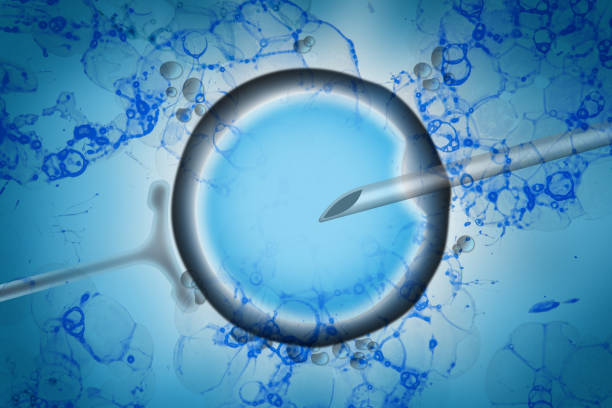
Assisted Reproductive Technology in Thane
According to WHO, around 60-80 million people suffer from infertility worldwide. 15-20 million people are from India alone. There are many reasons for unexplained infertility in men and women. But, it can be overcome with assisted reproductive technology. Dr. Malatibai Chitnis Hospital is the leader in using these methods. They help couples realize their dream of parenthood.

Infertility assisted reproductive technology is a series of medical treatments. These newer medical advancements help couples get pregnant when traditional methods fail. ART has provided a ray of hope for couples who are struggling with infertility.
The techniques used in ART range from in vitro fertilization (IVF), and intracytoplasmic sperm injection (ICSI) to other helpful methods, thus, boosting the chances of fertility.
Dr. Nikhil Chitnis is an established fertility specialist. He leads high-tech assisted reproductive technology (ART) services at Dr. Malatibai Chitnis Hospital, a distinguished IVF Centre in Thane.
Dr. Chitnis has over 18 years of experience in gynecology and infertility. His unyielding determination, passion, and professionalism have helped him provide promising solutions to couples struggling to conceive.
Ready to explore advanced fertility solutions? Contact the hospital and take control of your fertility.
Let’s move on and learn about the different types of assisted reproductive technology at Dr. Malatibai Chitnis Hospital.
What Are the Types of Assisted Reproductive Technology?
Here is some information regarding (ART) assisted reproductive techniques:
In Vitro Fertilization (IVF):
This is the most well-known form of ART. IVF involves collecting eggs from a woman’s ovaries. Then combine them with the sperm in the lab. Once fertilized, the embryo is placed in the uterus.
Intracytoplasmic Sperm Injection (ICSI):
A type of IVF, ICSI involves the direct injection of a single sperm into an egg to achieve fertilization. This technique is often used in severe cases involving sperm quality or quantity.
Embryo Cryopreservation:
This technique involves freezing embryos at very low temperatures. These embryos can be thawed and used in future IVF cycles.
Egg Freezing (Oocyte Cryopreservation):
Like embryo freezing, egg freezing involves preserving a woman’s eggs for later use. This is often done for women who wish to delay childbearing for various reasons.
Ovulation Induction:
This involves the use of medications to stimulate ovulation in women who have irregular or absent menstrual cycles.
Frozen Embryo Transfer (FET)
FET involves thawing and transferring frozen embryos from the previous IVF cycle into the uterus.
Donor Eggs and Sperm:
This involves using eggs or sperm provided by a donor when there are severe issues with a couple’s gametes.
Gestational Carriers (Surrogacy):
This method involves another woman carrying a pregnancy for those who are unable to conceive or carry a pregnancy themselves.
Don’t let infertility hold you back. Book an appointment and begin your path to parenthood.
Now that we have covered the types of treatments, let’s check out the several advantages of ART.
Benefits of Assisted Reproductive Technology

Enhanced Chances of Conception
ART greatly improves the chances of pregnancy for couples who are infertile. IVF, IUI, and ICSI among other techniques are designed according to specific fertility barriers including low sperm count, ovulation difficulties, and fallopian tube blockages.
Great Option for LGBTQ+ Couples And Singles
ART provides the opportunity for parenthood to single individuals and same-sex couples too. It enables them to begin families through sperm donation, egg donation, and gestational surrogacy, among others.
Preservation of Fertility
It helps people undergoing other medical treatments that threaten their fertility such as chemotherapy, or radiation. ART provides procedures for oocyte and sperm freezing. This allows people to save reproductive cells until they can have a family.
Genetic Screening
Advanced ART techniques offer genetic screening, aimed at detecting and preventing the transmission of genetic diseases through careful selection.
Experience these cutting-edge treatments, Contact the hospital to book an appointment today.
Furthermore, find out how the fertility specialists at Dr. Malatibai Chitnis Hospital approach these assisted reproductive techniques.
Our Approach
ART banks are crucial in third-party reproduction. They store and distribute reproductive materials, like sperm, eggs, and embryos.
Dr. Malatibai Chitnis ART bank is one of the first authorized banks in this field. It provides a safe, regulated platform for people seeking assisted reproduction services.
These banks ensure ethical practices. They also ensure confidentiality and access to a diverse range of reproductive options. This empowers individuals to build families through assisted means.
Curious to know how effective ART is? Learn about the success rates below.
Our Success Rate
At Dr. Malatibai Chitnis Hospital, we have an impressive success rate of around 90% in assisted reproductive techniques. It highlights the remarkable strides in medical technology and the expertise of our fertility specialists. This achievement is a testament to our commitment to excellence in reproductive care.
Let’s glance at what factors influence these high success rates:
- Continuous progress in techniques like IVF, ICSI, and others, is a major contribution to these results.
- The contribution of highly experienced reproductive endocrinologists and their holistic patient care.
- Creating patient-centered ART strategies by detailed assessments.
Take the first step towards building your family. Book an appointment with the leading fertility expert now.
If you have more questions about ART, refer to the FAQs below.
Frequently Asked Questions (FAQs)
Indeed, postmenopausal women may consider various ART possibilities, including using donor eggs. This allows them to carry a pregnancy using hormone therapy even if their eggs are no longer viable.
ART can up the chances of multiple pregnancies, particularly when more than one embryo is placed in the uterus. Nevertheless, most of the clinics, today, prefer to have single embryo transfer. This helps minimize the risk of multiple births and ensures the health of both the mother and the baby.
ART can effectively treat infertility caused by factors such as ovulatory disorders, blocked fallopian tubes, endometriosis, male factor infertility, and unexplained infertility.
